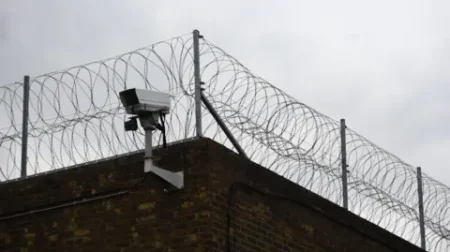The recent actions of the Justice Department in the United States have drawn significant attention after charging a man named Mohamed Sabry Soliman with multiple hate crimes. According to reports, this indictment stems from an incident in which Soliman allegedly threw Molotov cocktails at a gathering in Boulder, Colorado. The attendees at this demonstration were expressing support for Israeli hostages, and the attack has raised serious concerns regarding hate-driven violence in America.
The legal proceedings surrounding Soliman intensified after a federal judge determined that the Justice Department could indeed proceed with hate crime charges against him, an essential development given that he was already facing two unrelated hate crime charges prior to this incident. The underlying circumstances have brought to light the extent of Soliman’s alleged premeditated actions; prosecutors assert that he meticulously planned the assault for an entire year, driven by an alarming desire to harm individuals whom he identified as “Zionists.” It’s crucial to understand the context in which these statements were made, highlighting both the emotional and ideological underpinning behind the attack.
On June 1, the chaotic scene unfolded as Soliman allegedly launched these improvised explosive devices into a crowd, resulting in injuries to at least eight individuals. The heinous nature of this act has resulted in Soliman facing a total of 12 hate crime charges according to the Justice Department. These charges could potentially lead to severe penalties, including life imprisonment, should the court find him guilty.
Compounding the gravity of the situation, prosecutors revealed new evidence, including a handwritten note that was purportedly found in Soliman’s vehicle post-attack. This document allegedly contained incendiary language and overt threats against Zionists, with statements declaring, “Zionism is our enemies until Jerusalem is liberated and they are expelled from our land.” Such rhetoric underscores the dangerous mindset attributed to Soliman, further illuminating his hostile and aggressive stance toward a perceived enemy.
Upon his arrest, Soliman reportedly confessed to intentions far more sinister than mere vandalism. Investigators indicated that he expressed a desire to kill participants at the demonstration, framing his actions as a form of personal retaliation. Soliman recounted how he had searched online for events linked to Zionism in order to maximize the effectiveness of his insurgent strike against those he targeted.
At this point, however, it is important to note that Soliman has yet to enter a formal plea regarding the charges against him. His defense attorney, David Kraut, has challenged the prosecution’s narrative, arguing that Soliman’s actions were primarily directed at the political ideology represented by the protestors rather than their religion or ethnic background. Kraut contended that because the attack was motivated by political views and not religious identity, it may not satisfy the legal criteria for a hate crime under federal law.
In a hearing addressing these claims, the presiding judge acknowledged potential weaknesses in the prosecution’s case but ultimately concluded that the government merits certain benefits of the doubt at this early stage in legal proceedings. This suggests a delicate balance between the evidence presented and the gravity of the charged offenses.
As the case unfolds, it stands as a significant indicator of how the U.S. justice system navigates the complexities surrounding hate crimes, especially in a politically polarized environment. The ramifications of this case extend beyond just the individual involved; they challenge societal perceptions of hate-fueled violence and the legal interpretations of what constitutes a hate crime in America today. Further updates on Soliman’s case will likely continue to reflect broader societal issues surrounding hate, terrorism, and the implications of political dissent in the context of freedom of expression.











